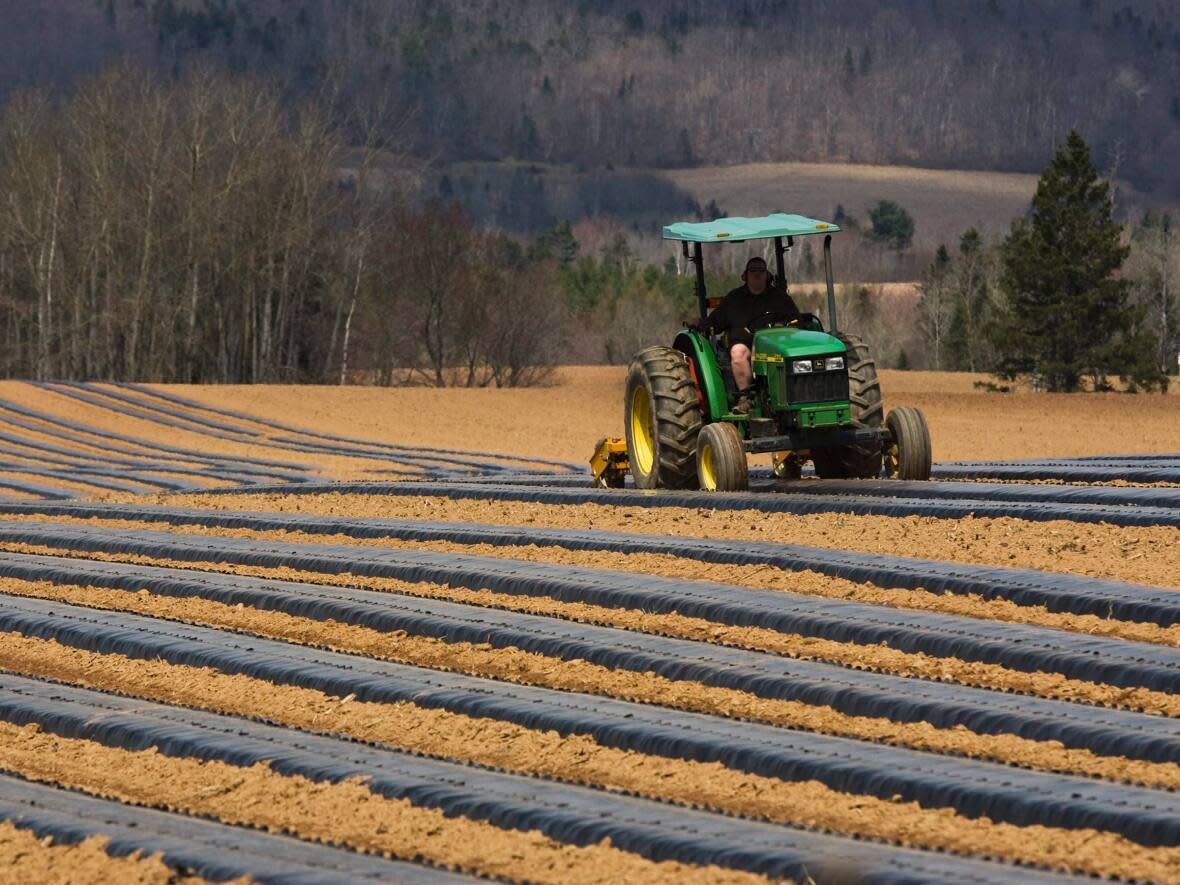Nova Scotia faces shortage of 2,600 farm workers by 2029, agriculture group says

The president of the Nova Scotia Federation of Agriculture says the province could have a shortage of 2,600 farm workers by 2029.
"Provincially we've been short workers over the last number of years and decades even at this point," said Allan Melvin, who is also a farmer.
Meanwhile, he said farm operators are trending toward "either having to find a succession plan or figuring out other ways to wind down" ahead of retirement. The average age of farm operators in Nova Scotia is 58, according to Statistics Canada's 2021 Census of Agriculture.

A recent report from the Royal Bank of Canada says the country faces a shortage of 24,000 general farm, nursery and greenhouse workers and the potential retirement of 40 per cent of farm operators over the next decade.
Providing foreign workers with permanent residency status could help address these labour shortages and maintain a source of experienced workers, it says.
Temporary foreign workers are already a "key" part of Nova Scotia's agriculture industry, making up about one quarter of farm workers in the province, Melvin said.
Stacey Gomez, a program manager at the migrant-rights group No One Is Illegal Nova Scotia, agrees that these workers play an important economic role in the industry.
Without them, she said, "our agriculture system would not operate."
"What we hear from migrant workers is that permanent residence status is a priority [so they can] have access to and exercise rights, such as labour rights," Gomez said, "to have access to essential services like health care and to be united with their families."

To be eligible for provincial health insurance in Nova Scotia, workers from outside Canada must have a work permit that is valid for at least 12 months. But temporary foreign workers who come to Canada under the Seasonal Agricultural Workers Program are permitted to work for a maximum of eight months.
Philip Keddy employs up to 75 migrant workers on his farm during peak season. He said that while pathways to permanent residency would be a good start, it is "not the thing that's going to fix the work issue in agriculture, it's going to be a combination of many things."
Number of N.S. temporary foreign agriculture workers in 2022
For example, Keddy said it is difficult, if not impossible, for new operators to start their own farms.
Setting up an apple farm of four hectares to eight hectares would require an investment of $4 million to $5 million, he said, "and you're three years out from harvesting a crop."
Ultimately, Melvin said, while the industry supports new immigration pathways, "generally within the seasonal agricultural side of things, [permanent immigration status is] probably not a solution to our worker shortages because we are seasonal work and once people are here year-round, they are looking for year-round work."
Canada also needs to look internally to ensure the sustainability of its domestic food supply, he said.
"In terms of our students going through the school system, agriculture is very much seen a lot of times as not an option," Melvin said.
If the farming labour shortage isn't addressed, he said it could lead to higher food prices and possibly shortages in the long term.
MORE TOP STORIES


